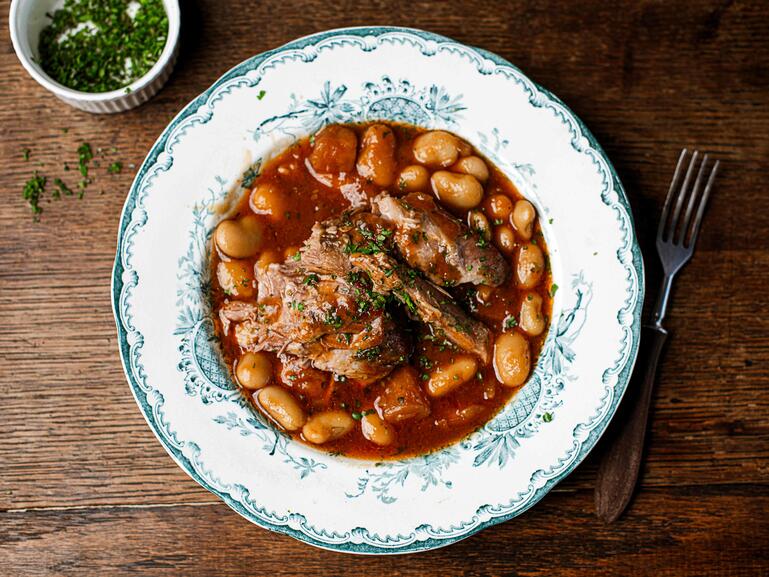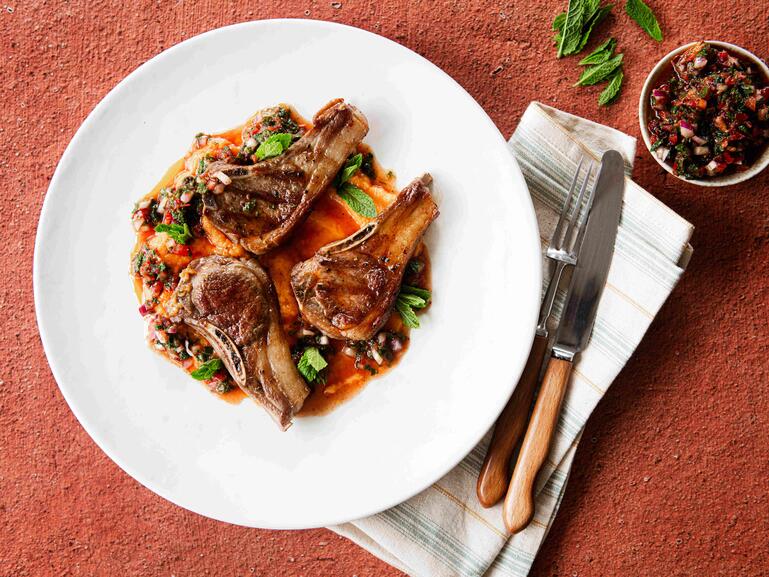
Method
- Remember to remove your lamb shoulder out of the packaging, pat dry and bring to room temperature.
- Pre heat your oven to 200°C temperature fan assisted or 215°C without a fan.
- Season the lamb shoulder just prior to roasting.
- Choose a large, heavy based roasting tray, ideally with deep sides and handles for easy movement.
- Massage a little goose or duck fat or a light olive oil if the lamb shoulder does not have a generous coating of fat then season with good quality fine sea salt.
- Make a trivet by roughly chopping equal amounts of onion, carrot and celery or my preferred choice of celeriac, the root of the celery plus a bay leaf, sprig of thyme and a few black peppercorns, another nice addition can be a head of garlic split in half.
- Place the lamb shoulder skin side up onto the trivet which should line the base of the tray.
- Place in centre of oven and roast for 20 minutes then reduce the temperature to 190°C then continue roasting for 30 minutes per 500g reaching a core temperature of minimum 58°C.
- Alternatively add half a bottle of white wine and the same of water to the tray and pot roast after the initial 20 minute roast by covering with tin foil and cooking o 140°C for 5 to 6 hours nice and slow, ensure the meat comes away from the bone easily if using this method.
- Remove the lamb shoulder from the oven and pop onto a clean tray and keep warm by covering with a sheet of tin foil then resting for a minimum of 20 minutes before carving, leaving the roasted vegetables in the tray for the gravy.
- For the gravy I make up 500 ml of essential cuisine lamb stock, then deglaze roasting tray with this stock stirring all the caramelized juices from the tray, then pass through a fine sieve pushing all the juices from the vegetables into a clean sauce pan, bring to the simmer and thicken if required by whisking in a teaspoon of corn flour mixed with a little cold water and reduce till you reach a rich glossy gravy.







